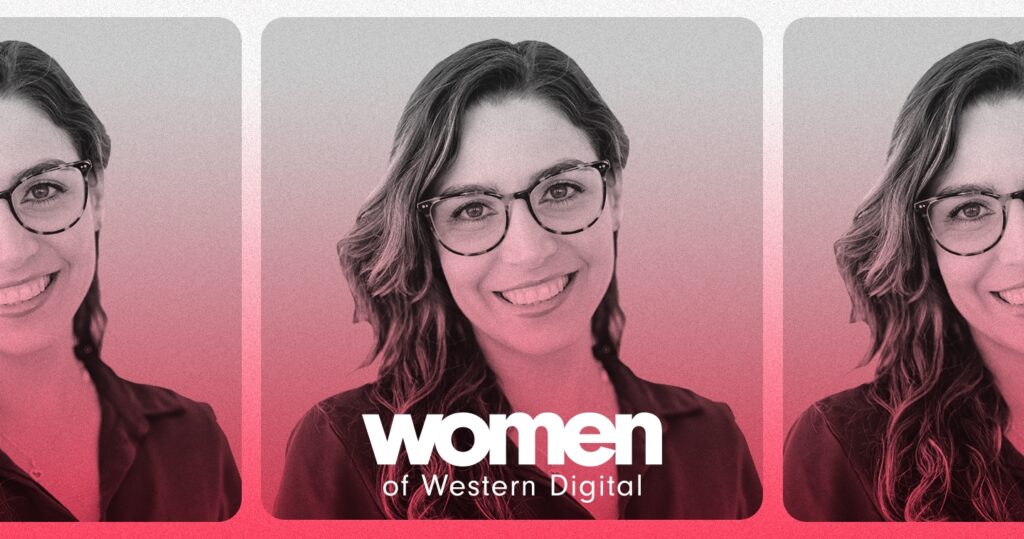Nora Dávila: Changing the Rules
Nora Dávila had nearly finished a Bachelor’s in electrical engineering from the University of Puerto Rico Mayagüez when she had an epiphany.
“When you’re designing a circuit, actually what defines the rules or designs are the materials,” she said. “It kind of clicked, like, okay these rules make no sense, why do I need to follow them? I want to work on the materials side so we can change the materials so then we can change the rules.”
Fresh to working in microfabrication and simultaneously completing her material science certificate, the circuit was wired for a light bulb moment. But Nora had been laying the groundwork for years.
Her interest in engineering was first sparked in high school when she attended a summer program at her future alma mater. Students tried their hand at different fields of engineering through building project modules: a structure for civil engineering, a boat for mechanical engineering. But the electrical engineering construction blew the rest out of the water – a playable, light-up piano.
“I guess that was something so cool to do,” Nora said. “It’s not just to see, it was more like — I have a guide and then I can follow it and I can do it myself.” From the start, she was attracted to the hands-on play of engineering.
But the play needed process, something she discovered through early work experience. The summer after freshman year of college Nora took a programming class so dreary she booked each following summer solid with exciting internships. The next few years Nora recreated her engineering camp experience, trying on different fields for size.
“I recommend this to everyone, and they’re like, ‘Nora this is exhausting,’ and it was,” she said of her internships dabbling in electromagnetics and digital signal processing. But she believes it was worth the effort. “Same in life, right? You try this and if you try it and don’t like it, that’s good, because you know you don’t like it.” An engineer at heart, even the failed trials reveal useful information.
This attitude serves Nora well in her time at Western Digital’s nanofabrication lab: the only research lab of its kind in the industry. Nora said this fact is, “great and sad at the same time.” While it’s sad so many companies have closed their nanofabrication labs due to high operating costs and a shift of interest from hardware to software, the lab’s unique persistence has entailed exciting and important work for Nora.
Specifically, Nora’s been helping to pioneer a growing branch of nanotechnology: computational hardware. “It’s something that I will just keep researching and working on, because it’s fascinating, no?” Nora said. “How if you make something specialized to solve a problem, then you don’t need the software to go around.”
Software is a great tool, Nora explained, but it can be inefficient. To process most data, software needs to translate analog information into digital code. Specialized computational hardware does not require this translational step, which makes it a faster and more energy-efficient form of storage and computation.
“It’s just a solution that was not available years ago,” Nora said of computational hardware. Now, she finds her old papers receiving more and more references. “What I was working on 10 years ago, now I’m seeing it.”
Her personal life also benefits from the fruits of long-term trial and error. She has learned what she needs: a written planner, two books to alternate between, and Nova, a sweet Maine coon she adopted while completing her Ph.D. at the University of Michigan. She holds routine dear but loves testing new hobbies; sewing was interesting in theory but tedious in practice, baking was fun but took its toll on Nora and her husband’s waistlines, camping was such a success she purchased an Airstream van.
Nora’s hoping to get a specific return on this investment: she’d like to use her camper van someday for a national book tour. The manuscript is still pending, but the goal is to expand the impact of mentorship work that has grown out of her research career.
“To me, mentorship is critical in life, it doesn’t matter what you’re doing,” she said. “Seeing someone that is where you want to be, it just has an impact on your life.” Particularly as a Puerto Rican woman working in technology, Nora appreciates the unique impact her visibility can have on fellow Latinas pursuing careers in STEM.
“Sometimes [mentees] ask simple things that I think about like, oh that’s so simple. But to them, it’s a distinction between accomplishing something and not doing it.” She is currently gearing up to share insights from her career (both simple and difficult) in a podcast geared towards Latinx people in tech.
“I have so many mentors, I have so many great women I am inspired by, so I hope that I can serve others like that,” she said of the podcast. By sharing our stories, Nora reminds us, we can equip each other with insight. That is the kind of stuff that breaks all rules.




